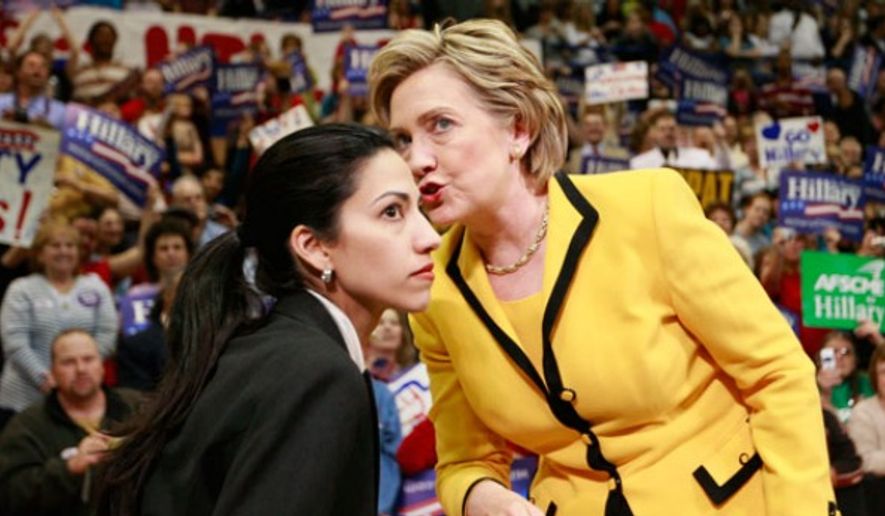Messages involving the then-chairman of Morgan Stanley Asia and a top Clinton Foundation official and donor are among the dozens of new email exchanges from Hillary Clinton’s time as secretary of state released on Tuesday by a watchdog group.
One message from Stephen Roach, then-chairman of Morgan Stanley Asia, to Mrs. Clinton provides his upcoming early 2009 testimony before Congress on the U.S.-China economic relationship.
Mrs. Clinton thanked Mr. Roach for sending it along and said she would ask her staff about maybe connecting in Beijing, later asking top aide Huma Abedin about that possibility.
Sen. Bernard Sanders had made Mrs. Clinton’s relationships with top Wall Street firms one of his more prominent criticisms during the Democratic presidential primary contest.
The messages were released by Judicial Watch, a conservative legal group that has fought for the release of her messages. The group said the new ones appear to contradict Mrs. Clinton’s statements that she turned over all her work-related emails to the State Department after her time there.
There’s also a message showing Doug Band, a former top official at the Clinton Foundation, communicating with Ms. Abedin and aide Cheryl Mills in April 2009, and saying he needed to get Gilbert Chagoury, who is a major Clinton Foundation donor, to speak to the “substance person” on Lebanon.
“No wonder Hillary Clinton and Huma Abedin hid emails from the American people, the courts and Congress,” said Judicial Watch President Tom Fitton. “They show the Clinton Foundation, Clinton donors and operatives worked with Hillary Clinton in potential violation of the law.”
Mrs. Clinton has maintained that she turned over some 30,000 emails her lawyers identified as work-related in December 2014, nearly two years after she left office, and has said that some 32,000 emails she deleted were personal in nature.
Some of the emails released Tuesday predate the time period Mrs. Clinton’s campaign has outlined for the approximately 30,000 emails she turned over that were supposed to have been from between March 18, 2009, and Feb. 1, 2013.
FBI Director James B. Comey, though he declined to recommend criminal charges over the mishandling of classified material through Mrs. Clinton’s emails last month, said she and her aides were “extremely careless” in her private email setup.
Mrs. Clinton has struggled to explain the nature of the classified material she handled. She first said emphatically that no classified material was ever sent or received, then later changed that formulation to “not marked classified at the time.”
Mr. Comey said last month she might not have been sophisticated enough to understand classification markings contained on three of the documents indicating they were, indeed, classified at the time they were sent or received.
Mrs. Clinton also said recently that Mr. Comey had indicated her answers were “truthful” — a claim taken to task by fact-checkers. Mrs. Clinton’s campaign later said she had been referring to Mr. Comey’s statement that there was no evidence she lied to the FBI when they interviewed her in their investigation.
• David Sherfinski can be reached at dsherfinski@washingtontimes.com.




Please read our comment policy before commenting.